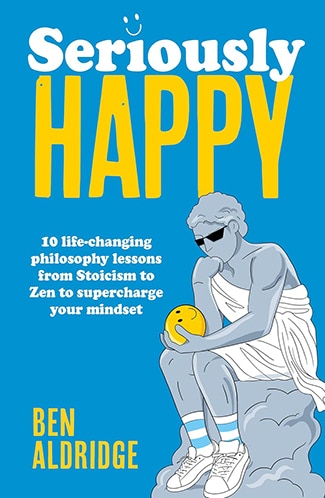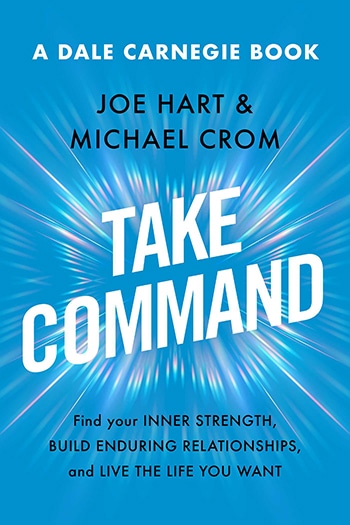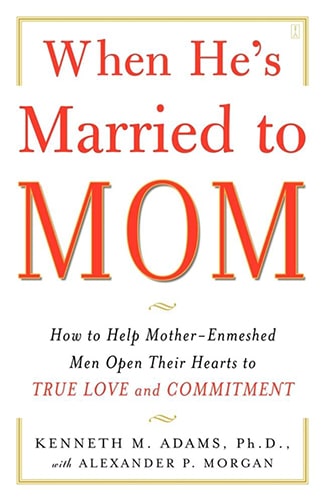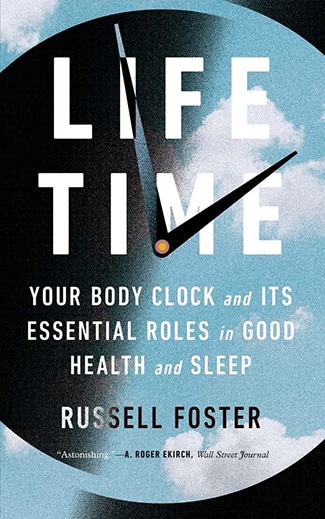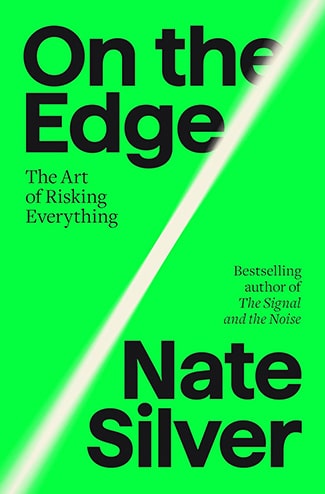Podcast Summary
The joy of struggling with meaningful challenges: Embrace difficult moments to grow and find greater self-esteem, as they often lead to the greatest sources of personal development.
Real joy and fulfillment in life come from the journey of tackling meaningful challenges, even if they bring difficulty and discomfort, rather than just reaching the destination. Dr. Adam Fraser, a peak performance researcher and author of "Strive: Embracing the Gift of Struggle," shares this concept as the "strive state." He explains that we often resist embracing the strive state and the growth it brings, and when we don't have to struggle, we may miss out on the greatest sources of personal development and self-esteem. In their research on the flow state, Fraser and his team discovered that while flow experiences, where we're fully engaged and absorbed in a high-challenge, high-skill activity, are enjoyable, the experiences that build our skills the most are those with high challenge, high skill, but low enjoyment and interest. These difficult moments push us to bring our best selves and help us grow.
Handling challenging situations for personal growth: Embracing uncomfortable situations with high skill and courage leads to personal growth and amazement, known as the 'strive state'.
Challenging situations, despite being uncomfortable and requiring high skill and courage, can lead to personal growth and amazement. This state of handling difficult situations is called the "strive state." Striving involves tackling challenges that require high skill and courage, even when they bring about low enjoyment and interest. Personal examples of the strive state include presenting at a conference in front of heroes or overcoming personal challenges like anger problems. The purpose of striving is essential in the pursuit of meaningful goals and helps individuals grow beyond their perceived limits. Conversely, avoiding struggle can lead to dysfunction and a lack of personal growth. Our culture, as well as individual tendencies, often encourage taking the path of least resistance. However, embracing challenges and entering the strive state can lead to long-lasting positive effects.
The importance of embracing negative emotions for personal growth: Constant pursuit of happiness can hinder growth and lead to mental health issues. Instead, embrace negative emotions as opportunities for learning and evolution.
Constant pursuit of happiness can be detrimental to our mental health. We've come to view negative emotions as something to be avoided at all costs, but they're a normal and necessary part of the human experience. The lawyers interviewed for the book emphasized that lack of struggle and hardship can lead to dysfunctional behaviors and mental health issues in wealthy individuals. Furthermore, the constant obsession with happiness can limit our ability to learn, grow, and develop. Instead, we should embrace negative emotions as opportunities for growth and evolution. The Dalai Lama's experience in Kuwait highlights the importance of striving and facing challenges to increase happiness and purpose. In essence, it's not about eliminating negative emotions, but rather learning to sit with them and use them as fuel for personal growth.
Embracing a range of emotions for personal growth: Experiencing a mix of emotions, including negative ones, leads to better mental health and personal growth. Avoiding challenges and growth opportunities due to fear of discomfort or negative emotions can hinder potential.
The pursuit of constant happiness can hinder personal growth and fulfillment. Research suggests that experiencing a range of emotions, both positive and negative, leads to better mental health and well-being. However, many people have an aversion to negative emotions, which can prevent them from reaching their full potential. This "anti-striving" mindset can lead individuals to avoid challenges and growth opportunities, rather than embracing them. Additionally, the belief that achieving a specific goal will bring lasting happiness, known as the "completion myth," is also a common misconception. Many people overestimate the impact a goal's achievement will have on their happiness and fulfillment. Instead, focusing on growth, impact, and evolution, even when it brings discomfort, can lead to a more meaningful and fulfilling life.
The joy is in the journey, not just the outcome: Appreciating the process of striving towards goals can lead to greater fulfillment and happiness than just achieving them. The struggle and effort put into reaching goals often provide the most satisfying moments.
The feeling of fulfillment and happiness often comes from the process of striving towards a goal rather than achieving it. The brain's "hedonic treadmill" can make us believe that once we obtain a desired object or accomplishment, we will be content. However, research shows that the most satisfying moments often come from the struggle and effort put into reaching the goal. This was evident in powerlifting, where the most fulfilling experiences were during the training process, particularly when facing challenges. Hemingway's idea of "pursuit as happiness" summarizes this concept well. Therefore, instead of focusing solely on the outcome, it's essential to appreciate and find meaning in the journey towards completing goals. Additionally, making everything too easy for ourselves can lead to dissatisfaction and even negatively impact our development.
The importance of inclusion and valuing every participant: Embrace the process, take risks, and find joy in the journey towards achieving goals, rather than solely focusing on the end result to ensure greater fulfillment and satisfaction in life.
The pursuit of ensuring everyone wins at the expense of the process can lead to dissatisfaction and unhappiness. This was illustrated through the experience of Pass the Parcel, where the speaker initially resisted the idea of every child receiving a toy, but later came to understand the importance of inclusion and ensuring each child felt valued. This concept can be applied to various aspects of life, including personal goals and relationships. The Strive state, which involves courage and evolution, emphasizes the importance of embracing the process, taking risks, and finding joy in the journey towards achieving our goals, rather than solely focusing on the end result. This mindset can lead to greater fulfillment and satisfaction in life.
Regrets from deathbed research: Be more courageous: People regret not being courageous enough to live their desired life, express love, and overcome fears. Embrace challenges for growth and self-evolution.
Courage and personal growth are essential for a fulfilling life. According to deathbed regrets research, people wish they had been more courageous in living the life they wanted, expressing their love, and overcoming fears. Courage builds self-esteem and pride, and seeing ourselves evolve is a powerful motivator. Struggle is an inevitable part of life, and growth-centric struggle, where we actively choose to evolve, is the most beneficial. Growth-centric struggle allows us to shape our lives, build resilience, and reach our full potential. It's essential to embrace challenges and use them as opportunities for growth, rather than avoiding them. By focusing on courage and personal growth, we can lead more meaningful and satisfying lives.
Embracing challenges as opportunities for growth: Good strivers view struggles as essential for personal and professional development, and learn to embrace them as opportunities for growth.
Our mindset towards challenges and struggles significantly impacts our ability to grow and evolve. Those who view struggle as an opportunity to learn and improve are more likely to embrace it and develop new skills, while those who see it as a threat may try to avoid it or even sabotage initiatives that bring about change. Good strivers accept that struggle is an inevitable part of growth and are comfortable with the discomfort it brings. They understand that embracing challenges and learning from them is essential for personal and professional development. Additionally, it's important to note that this mindset can be developed with practice and experience. By facing challenges head-on and learning to view them as opportunities for growth, individuals can build the mental muscle needed to thrive in the face of adversity.
Embracing Change and Maintaining Focus: Successful individuals adapt to change, stay focused on their goals, and view challenges as opportunities for growth. They prioritize practices for mental clarity and recovery, and maintain a strong connection to their purpose.
Successful individuals, often referred to as "good strivers," have the ability to embrace change, even when it's difficult, and maintain focus on their goals and purpose. They understand that progress may involve struggle and hardship, but they remain reflective and courageous, constantly evolving as individuals. These individuals also prioritize practices that help them maintain focus, such as meditation and hobbies, and prioritize recovery and celebration of victories to avoid burnout. They view challenges as opportunities for growth, rather than threats to be avoided. Additionally, they maintain a strong connection to their purpose and meaning, which drives them forward during times of struggle.
Encouraging children to face challenges and learn from struggles: Exposing kids to challenging situations and allowing them to solve problems instead of constantly rescuing them helps them develop resilience and essential life skills.
Effective micro-transitions and allowing children to experience struggles are crucial for personal growth and development. High performers and good strivers are able to adapt to challenging situations with the right attitude and mental focus. This skill set is essential for finding meaning, self-esteem, and self-admiration through the pursuit of hard things. In real life, parents can encourage their children to strive better by exposing them to challenging situations and allowing them to solve their problems instead of constantly rescuing them. This not only helps kids develop resilience but also teaches them valuable life skills. As Adam Fraser, the author of the book "Strive," suggests, "sometimes in life you get a coach that's mean. Sometimes in life you have a leader that's not that nice. Like, I'm not gonna rescue you from this." By letting kids deal with discomfort and adversity, they will learn to solve problems, build confidence, and become better versions of themselves. To learn more about Adam Fraser and his work, visit his website, doctoradamfraser.com.
Apply what you learn from podcasts: Listen to podcasts for inspiration, but don't stop there. Use the knowledge to make a difference in your life and the lives of others.
Listening to informative and inspiring podcasts is valuable, but only if you put the knowledge into action. Brett McKay, the speaker, emphasized the importance of applying what you learn to your own life. He reminded listeners to remember the name of their favorite podcast and keep coming back for more. However, the true value comes from implementing the ideas and strategies discussed in the podcasts. By doing so, you can make a positive impact on your own life and the lives of those around you. Don't just listen for the sake of listening; take action and make a difference.

